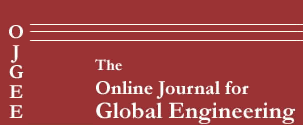Article Title
Abstract
At the 9th Annual Colloquium on International Engineering in November of 2006, the consensus between corporate and academic presenters/attendees was that global engineering students need not only to develop foreign language proficiency, but must just as importantly develop cross-cultural, adaptive "soft skills" which will assist them in working collaboratively in their co-ops, internships and expatriate assignments. While university engineering programs often focus on "hard" technical skills, it is becoming increasingly evident that in order to compete in a global environment, international engineering students must become competent in both foreign language and culture. By examining the "best practices" of international companies and the programs developed by cross-cultural trainers, university programs can begin to better develop criteria and standards for their programs, thereby insuring their students have the best possible training as global engineers.
Recommended Citation
Del Vitto, Carol
(2008)
"Cross-Cultural "Soft Skills" and the Global Engineer: Corporate Best Practices and Trainer Methodologies,"
Online Journal for Global Engineering Education:
Vol. 3:
Iss.
1, Article 1.
Available at:
